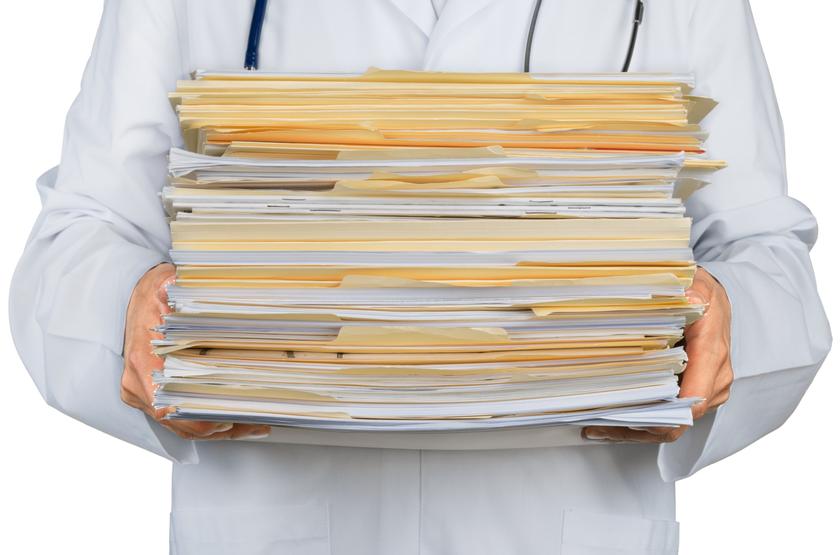Obtaining Medical Records: Vital Evidence in Personal Injury Cases

In personal injury cases, obtaining and preserving medical records is an essential step towards achieving justice and fair compensation for the injured party. These records serve as critical evidence, providing a detailed account of the injuries sustained, their severity, and the resulting medical treatment.
At Wham & Rogers, we know firsthand how important medical records are in building and winning personal injury cases. Your medical records provide evidence of your injuries and how these injuries have, and will continue to, affect your life. If you are unsure of how to obtain your medical records for a personal injury case, our Conroe injury attorneys can help.
The article below explores the importance of medical records in personal injury cases and offers guidance on how to obtain them efficiently. If you have questions, please do not hesitate to contact us by calling (832) 592-1108, or by clicking the link below.
Why Are Medical Records Crucial?
Medical records play a pivotal role in personal injury cases for several reasons:
- Establishing Causation: Medical records help establish a direct link between the injury and the incident or accident that caused it. They provide concrete evidence that the injuries were a direct result of the defendant's actions or negligence, strengthening the plaintiff's case.
- Determining Damages: Accurate medical records are essential for quantifying the damages suffered by the injured party. They help calculate medical expenses, future treatment costs, and any loss of income due to the injury. This information is vital for determining the compensation to which the injured party is entitled.
- Evaluating the Severity of Injuries: Detailed medical records offer insights into the severity of injuries. This information can influence settlement negotiations or court judgments, ensuring that victims are adequately compensated based on the extent of their suffering.
- Establishing a Timeline: Medical records create a chronological account of the injuries and treatment, providing clarity on the progression of the victim's condition. This timeline can be valuable in refuting claims of pre-existing injuries or medical conditions.
- Expert Testimony: Medical records often serve as a basis for expert testimony. Medical professionals can review these records and provide informed opinions on the extent of the injuries and their long-term implications, further supporting the plaintiff's case.
How to Obtain Medical Records
Obtaining medical records can seem a bit complicated, but with proper guidance, it can be made more manageable:
- Obtain the Patient's Authorization: The first step in obtaining someone's medical records, including your own, is to obtain proper authorization. This typically involves signing a release form provided by the healthcare provider. If you're representing someone else in a personal injury case, ensure you have the injured party's consent.
- Identify Relevant Healthcare Providers: Determine which healthcare providers have treated the injured party for their injuries. This may include hospitals, clinics, physicians, specialists, therapists, and more. You may need to request records from multiple sources to compile a comprehensive medical history.
- Contact Healthcare Providers: Once you've identified the relevant healthcare providers, reach out to them in writing. Use a formal letter or request form to request the medical records. Be sure to include the patient's authorization, specifying the records you need, such as doctor's notes, test results, and treatment plans.
- Follow Legal Requirements: Depending on your jurisdiction, there may be specific legal requirements for requesting medical records. Familiarize yourself with these laws to ensure compliance. In some cases, healthcare providers may have a specific timeline within which they must respond to requests.
- Pay Any Associated Fees: Healthcare providers may charge fees for copying and providing medical records. Be prepared to cover these costs, which can vary depending on the extent of the records requested. Ensure that you request an itemized invoice to keep track of expenses related to obtaining medical records.
- Organize and Review the Records: Once you receive the medical records, organize them chronologically and by healthcare provider. Review the records thoroughly to ensure they are complete and accurate. Any discrepancies or missing information should be addressed promptly.
- Preserve the Records Securely: Medical records are sensitive and confidential documents. Store them securely and maintain their confidentiality throughout the legal proceedings. This is crucial to protect the privacy of the injured party and comply with relevant laws.
Obtaining Medical Records in Texas
In Texas, patients have the right to access their medical records. This right is protected by state law and ensures that patients can request and receive copies of their medical records from healthcare providers. Patients may need to provide a written request and, in some cases, pay a reasonable fee for copying and providing the records. Healthcare providers are generally required to respond to these requests within a reasonable timeframe, typically within 15 days.
This right to access medical records allows patients to review their healthcare information, understand their medical history, and make informed decisions about their health. It also supports transparency and accountability in the healthcare system. Texas Health and Human Services provides more information about your rights, and provides information for contacting them directly to request records.
Types of Personal Injury Cases where Medical Records are Crucial
Medical records are crucial in various types of personal injury cases where the injuries sustained are a central element of the claim. Here are some common types of personal injury cases where medical records play a significant role:
- Car Accidents: Injuries from car accidents often range from minor cuts and bruises to severe injuries like fractures, spinal cord injuries, and traumatic brain injuries. Medical records help establish the extent of injuries, necessary treatments, and long-term implications.
- Slip and Fall Cases: In slip and fall or premises liability cases, medical records help establish that injuries were a direct result of the unsafe conditions on the property. They also provide insights into the severity of injuries and required medical care.
- Medical Malpractice: In cases of medical malpractice, medical records are central to establishing negligence. They show what medical procedures were performed, whether they were performed correctly, and whether there were complications or errors that led to harm.
- Workplace Injuries: In workers' compensation cases, medical records are essential to proving that an injury occurred at the workplace. They also outline the extent of injuries and the need for ongoing medical treatment or rehabilitation.
- Product Liability: Injuries resulting from defective products or medications often require extensive medical treatment. Medical records are critical in demonstrating the link between product use and injuries.
- Dog Bites: In cases of dog bites and animal attacks, medical records detail the injuries sustained, the need for surgeries or reconstructive procedures, and the potential for scarring or disfigurement.
- Assault and Battery: Victims of assaults may suffer physical injuries that require medical attention. Medical records help establish the extent of the injuries and their connection to the assault.
- Nursing Home Abuse: In cases of nursing home abuse or neglect, medical records can reveal signs of mistreatment, such as bedsores, malnutrition, or untreated medical conditions.
- Sports Injuries: In some cases, sports-related injuries may lead to personal injury claims, especially if negligence or inadequate safety measures are involved. Medical records document the nature and severity of sports-related injuries.
- Construction Accidents: Injuries resulting from construction accidents can be severe. Medical records are essential for proving the extent of injuries and the need for ongoing medical care or rehabilitation.
In all these cases, medical records provide essential evidence to establish the connection between the incident and the injuries sustained. They also help in quantifying damages, determining the appropriate compensation, and ensuring that the injured party receives fair and just compensation for their losses and suffering.
Get Help with Your Personal Injury Case
In personal injury cases, medical records are invaluable evidence that can significantly impact the outcome. They establish causation, quantify damages, and provide a clear picture of the injuries suffered. Obtaining medical records may seem like a complicated process, but you do not have to go it alone.
At Wham & Rogers, our personal injury attorneys can help you obtain medical records and other evidence needed to support your case. We provide support throughout the legal process, so you are never alone and never have to feel overwhelmed.
Get the help you need with a personal injury case by calling us at (832) 592-1108 for a free consultation, or by filling out the contact form on our website. Our team is here to help.
















